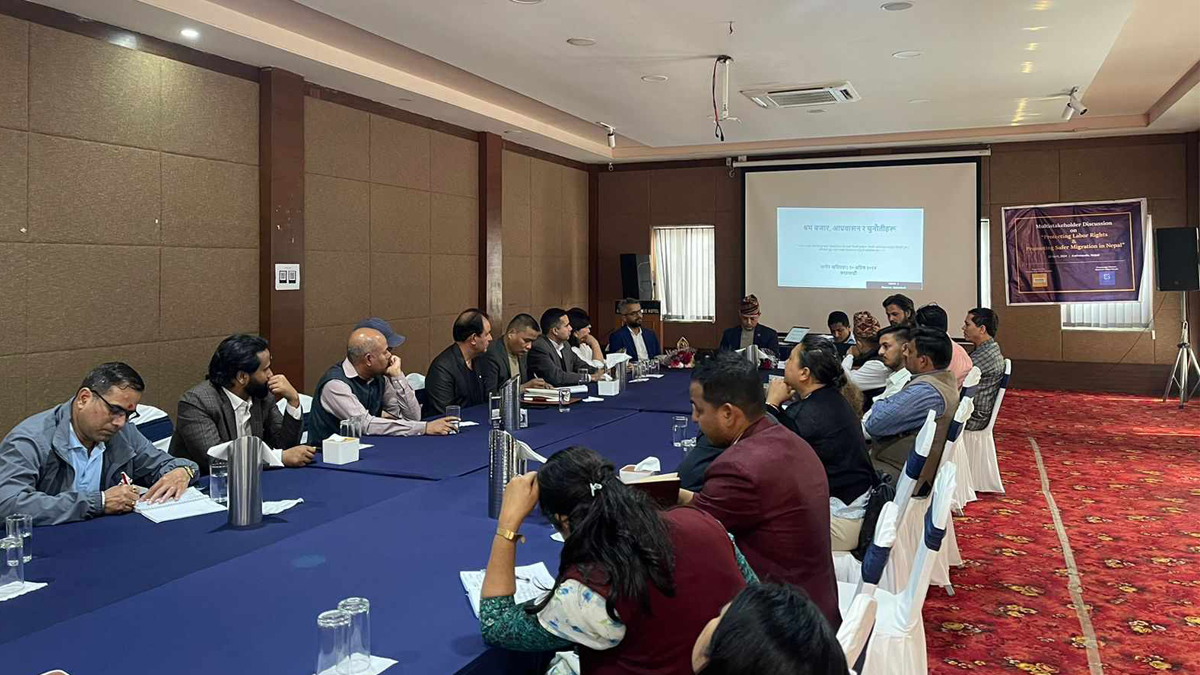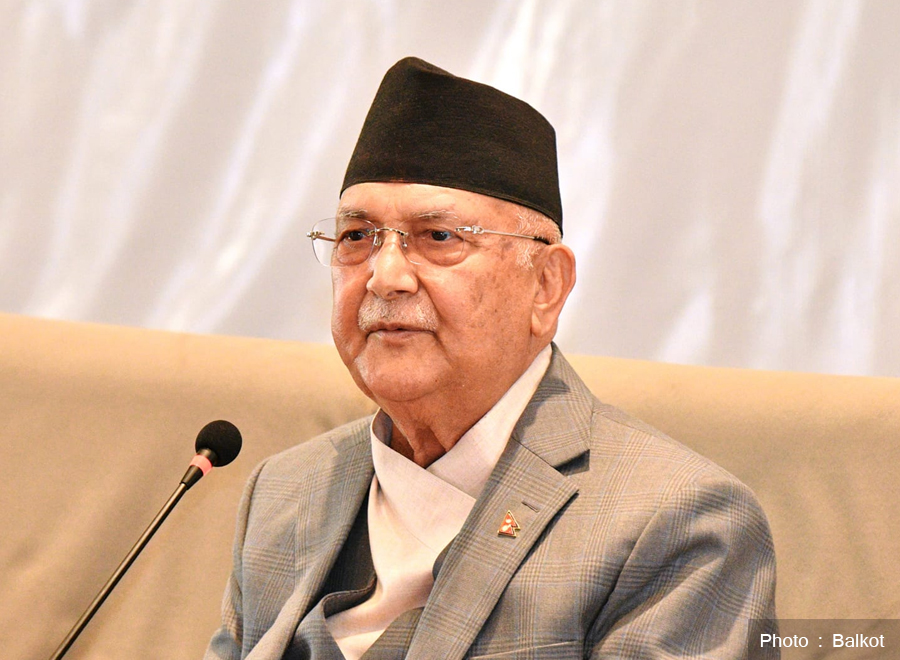Experts suggest better collaboration to ensure labour rights in Nepal

Kathmandu – Speakers at a programme laid emphasis on effective collaboration among stakeholders in order to guarantee protection and promotion of labour rights in Nepal.
At an interaction organised by the Democracy Media Network on ‘Protecting Labour Rights and Promoting Safer Migration in Nepal’ in Kathmandu on Wednesday, they argued that correction in present policy and behaviour of government agencies was imperative to reform this sector.
Minister for Labour, Employment and Social Security, Dol Prasad Aryal, said the Ministry was ready to collaborate with stakeholders so that labour rights could be better protected and safer migration promoted.
He assured that the Ministry would accept feedback from the concerned stakeholders to promote safer migration. “I expect constructive inputs from the national and international organisations, which could be a base for any reform initiative in this sector,” Minister Aryal said, underlining the need for creating more job opportunities.
Private sector would be taken in confidence to create more jobs, according to him.
The Minister emphasised that exploitation of people aspiring foreign jobs must end. “The government is aware of it so that their rights would not be compromised.”
On the occasion, Bagmati Provincial Assembly Member Suraj Lamichhane said the provincial government is also responsible to protect labour rights, so it welcomes feedback from stakeholders in this regard.
Dr Sameer Khatiwada,Senior Public Management Economist at Asian Development Bank (ADB), said that employment to population ratio and labour force participation rate in Nepal is significantly low compared to other South Asian and Asian countries.
Some immediate measures can be taken to curb unsafe migration, while accountability at multiple layers as in local agents, private recruitment agencies, family and relatives, friends and local money lenders can help end exploitation of aspiring migrant workers.
President of the International Institute for Human Rights, Environment and Development (INHURED International), Dr Gopal Krishna Siwakoti, suggested the government of Nepal to initiate the process of signing the Convention on the Transfer of Sentenced Persons so that Nepal could be able to bring back hundreds of Nepalis who are languishing in foreign jails on various offences.
Executive Director at Equidem Research Nepal, Rameshwar Nepal, commented that weak diplomacy and pervasiveness of administrative approach are some hindrances to reform in labour migration.
Executive Director at Aaprabasi Mahila Kamdar Samuha (AMKAS), Bijaya Rai Shrestha, expressed concern over ‘gendered’ approach while taking decision on labour permit. Women’s rights to choose labour destinations freely must not be belittled and breached, she reminded.

















Facebook Comments